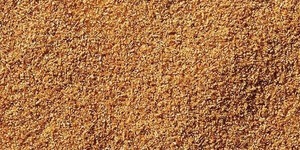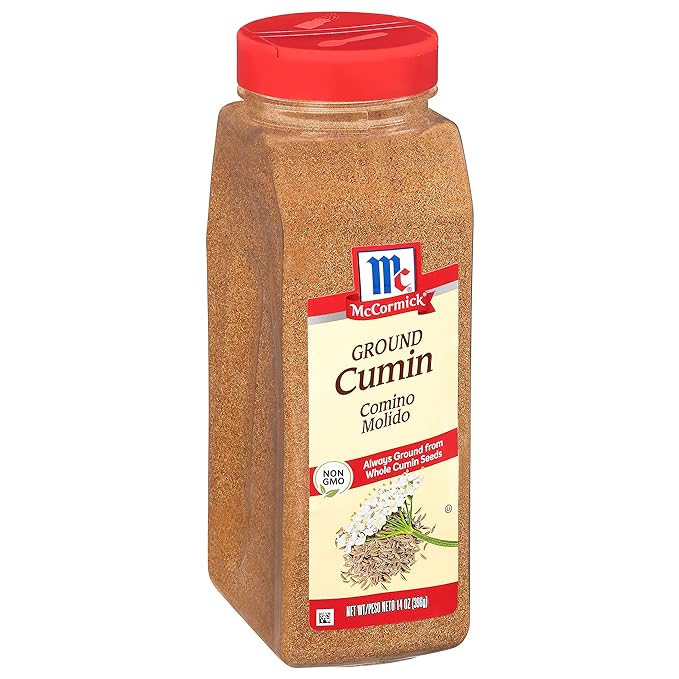
Cumin, a staple in many global cuisines, is more than just a spice that adds a distinctive flavor to your dishes. This small, dried seed from the Cuminum cyminum plant is packed with an array of health benefits. Let’s dive into the world of cumin and uncover why it deserves a prominent place in your pantry
Nutritional Profile
Cumin seeds are low in calories yet rich in nutrients. A tablespoon of cumin seeds contains:
- Calories: 22
- Protein: 1.1 grams
- Fat: 1.3 grams
- Carbohydrates: 2.7 grams
- Fiber: 0.6 grams
Additionally, cumin is an excellent source of iron, providing a significant portion of the daily recommended intake, along with magnesium, calcium, and vitamins B1, B2, and B6.
Health Benefits of Cumin
1. Boosts Digestion
Cumin is renowned for its ability to promote digestive health. It stimulates the production of digestive enzymes, enhancing the breakdown of food and nutrient absorption. The seeds also contain a compound called thymol, which increases the production of gastric juices, further aiding digestion.
2. Rich in Antioxidants
Antioxidants are essential for protecting the body against free radicals, which can cause cellular damage and lead to chronic diseases. Cumin is rich in antioxidants, such as flavonoids, carotenoids, and phenols, which help neutralize free radicals and reduce oxidative stress.
3. Enhances Immune System
With its high iron content and presence of other essential minerals, cumin supports a healthy immune system. Iron is crucial for the production of red blood cells and ensuring oxygen transport throughout the body, which is vital for overall immune function.
4. Anti-inflammatory Properties
Cumin contains active compounds like cumin aldehyde, which have been shown to exhibit anti-inflammatory properties. Regular consumption of cumin can help reduce inflammation in the body, potentially alleviating symptoms of inflammatory diseases such as arthritis.
5. May Aid in Weight Loss
Research suggests that cumin may assist in weight loss. A study found that women who consumed cumin powder daily experienced significant reductions in body weight, body fat percentage, and waist circumference compared to those who did not. Cumin may increase metabolism and help the body burn fat more efficiently.
6. Improves Blood Sugar Control
Cumin has been found to have antidiabetic properties. It can help lower blood sugar levels and improve insulin sensitivity, making it beneficial for individuals with diabetes or those at risk of developing the condition.
7. Supports Respiratory Health
The antiseptic properties of cumin can help in treating respiratory disorders. It acts as an expectorant, helping to clear mucus from the airways and ease symptoms of bronchitis, asthma, and other respiratory issues.
Culinary Uses of Cumin
Cumin is incredibly versatile and can be used in various culinary applications:
- Whole Seeds: Toasting whole cumin seeds releases their aromatic oils and enhances their flavor. They can be added to soups, stews, and rice dishes.
- Ground Cumin: This form is often used in spice blends such as curry powder and garam masala. It adds a warm, earthy flavor to dishes like chili, tacos, and roasted vegetables.
- Infused Oil: Cumin-infused oil can be used for cooking or as a finishing touch to salads and dips.
Conclusion
Incorporating cumin into your diet is a simple yet effective way to boost your health. From improving digestion and supporting the immune system to aiding in weight loss and managing blood sugar levels, the benefits of this powerful spice are plentiful. So next time you’re cooking, reach for cumin and let it spice up not only your meals but also your health.
Cumin: The most Delicious Recipes
Check out these irresistible cinnamon recipes!
cooking with Cumin 101
The Spicy Cumin Lamb Burger, an Anthony Bourdain Favorite
Xinjiang Cumin Lamb Stir Fry
Choosing the Right Cumin
Cumin, with its warm, earthy flavor and numerous health benefits, is a beloved spice in kitchens around the world. However, not all cumin is created equal. Whether you’re a seasoned chef or a home cook, selecting the right cumin can make a significant difference in your dishes. Here’s a detailed guide to help you choose the best cumin for your culinary and health needs.
Types of Cumin
Before diving into the selection process, it’s essential to understand the different types of cumin available:

Whole Cumin Seeds: These are the dried seeds of the Cuminum cyminum plant. They are usually toasted before being added to dishes to enhance their flavor.

Ground Cumin: This is simply whole cumin seeds that have been ground into a fine powder. It’s convenient and often used in spice blends.

Black Cumin Seeds: Also known as Nigella sativa or black caraway, these seeds have a slightly different flavor profile and are often used in Middle Eastern and Indian cuisines.
Choosing the Best Cumin
1. Check the Color and Aroma
- Whole Seeds: Look for seeds that are uniform in color, ranging from light brown to dark brown. They should be dry and free from any signs of mold or discoloration. The aroma of good quality cumin seeds should be strong and earthy.
- Ground Cumin: The powder should have a consistent color, typically a warm, yellow-brown. It should emit a robust, pungent aroma. If the scent is faint, the cumin may be old or of lower quality.
2. Consider the Source
The origin of cumin can influence its flavor and quality. Some of the best cumin comes from regions known for their spice production, such as India, Iran, and Turkey. When possible, choose cumin that is sourced from these areas or labeled as high quality.
3. Check for Purity
- Whole Seeds: Inspect the seeds for any impurities, such as small stones, debris, or other plant matter. High-quality cumin should be clean and pure.
- Ground Cumin: Ensure that the powder is pure cumin without any added fillers or preservatives. Some brands may mix cumin with other spices to cut costs, which can dilute the flavor.
4. Packaging
Choose cumin that is well-packaged to preserve its freshness. Whole seeds should be stored in airtight containers, preferably glass jars, to protect them from moisture and light. Ground cumin should also be in airtight containers, and it’s best to buy smaller quantities to maintain its potency.
5. Organic and Non-GMO Options
If you prefer to avoid pesticides and genetically modified organisms, look for cumin that is labeled as organic and non-GMO. Organic cumin is grown without synthetic pesticides and fertilizers, making it a healthier choice for you and the environment.
Storing Cumin
Proper storage is crucial to maintain the flavor and potency of cumin:
- Whole Seeds: Store in an airtight container in a cool, dark place. Whole seeds can last for up to a year if stored correctly.
- Ground Cumin: Store in an airtight container in a cool, dark place. Ground cumin typically stays fresh for about six months.
Using Cumin in Cooking
To get the most out of your cumin, here are some tips for using it in your dishes:
- Toasting: Toasting whole cumin seeds before grinding or adding them to dishes can enhance their flavor. Heat them in a dry skillet over medium heat until they become fragrant.
- Grinding: If you prefer the flavor of freshly ground cumin, invest in a small spice grinder or use a mortar and pestle to grind whole seeds just before use.
- Blending: Combine cumin with other spices like coriander, chili powder, and turmeric to create flavorful spice blends for curries, stews, and marinades.
Our Recommendations for Cumin Products

365 by Whole Foods Market, Organic Ground Cumin
Elevate your culinary creations with 365 by Whole Foods Market, Organic Ground Cumin. This premium spice, sourced from the finest organic farms, delivers a warm, earthy flavor and rich aroma that enhances a variety of dishes. Perfect for adding depth to curries, stews, marinades, and roasted vegetables, this versatile spice is a must-have in any kitchen.

McCormick Ground Cumin
Customers say
Customers appreciate the value, freshness, and quality of the herb. They mention it stays fresh over time, has an excellent flavor, and is of good quality. Some also say it comes in a large container.
